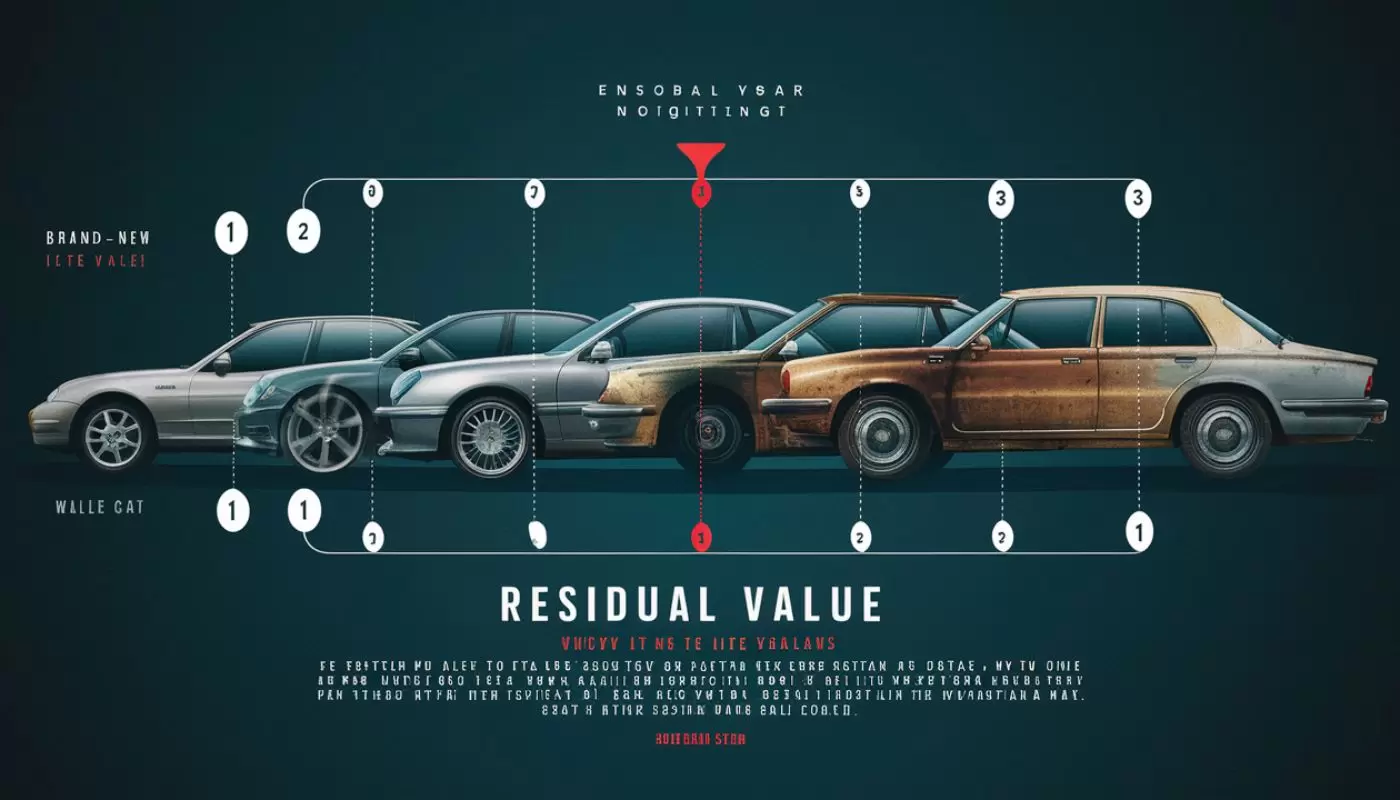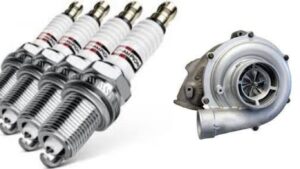In the world of finance, certain terms can make your head spin. One such term that often leaves people scratching their heads is “residual value.” But don’t worry – we’re about to embark on a journey that’ll make this concept as clear as day.
Whether you’re eyeing a new car lease, considering a novated lease, or just trying to wrap your head around loan structures, understanding residual value is crucial. So, let’s dive in and explore the ins and outs of residual value, its impact on various industries, and how it affects your wallet.
Cracking the Code: What Exactly is Residual Value?
Residual value, in its simplest form, is the estimated worth of an asset at the end of its lease term or useful life. It’s the crystal ball prediction of what something will be worth down the road. But it’s more than just a guess – it’s a calculated estimate based on various factors.
Let’s break it down with an example. Imagine you’re leasing a shiny new vehicle. The residual value is what the car is expected to be worth when your lease ends. This value plays a huge role in determining your monthly payments. The higher the residual value, the lower your payments might be. Why? Because you’re essentially paying for the depreciation of the vehicle during your lease term, not its full value.
But residual value isn’t just about car leases. It pops up in accounting, where it’s used to calculate depreciation. In investments, it helps determine the potential future value of assets. It’s a versatile concept that spans across various financial sectors.
From Cars to Computers: Residual Value Across Industries
While we often associate residual value with vehicles, its importance stretches far beyond the automotive world. Let’s take a cruise through different industries to see how residual value plays out:
- Automotive Industry: Here, residual value is king. It affects everything from lease payments to resale values. A car with a high residual value is like gold in the automotive world.
- Real Estate: In property, residual value helps determine the long-term value of buildings and land. It’s crucial for investors looking at potential returns over time.
- Technology and Equipment: From computers to heavy machinery, residual value helps businesses plan for upgrades and replacements.
- Aviation: Airlines use residual value estimates to make decisions about fleet purchases and leases.
- Fashion: Even in the world of haute couture, residual value plays a role in determining the investment potential of luxury goods.
What Makes Residual Value Tick?

Residual value isn’t pulled out of thin air. It’s influenced by a cocktail of factors that can make it rise or fall. Let’s explore some of the key players:
- Brand Reputation: A strong, reliable brand often translates to higher residual values. Think of it like this: a well-known, trusted brand is like a celebrity – it holds its value better over time.
- Market Conditions: The economy, supply and demand, and industry trends all play a part. In a booming economy, residual values might soar. In a downturn, they could take a nosedive.
- Technological Advancements: In tech-heavy industries, rapid advancements can quickly make today’s hot item tomorrow’s paperweight, affecting residual values.
- Supply and Demand: If everyone wants it, it’ll likely hold its value better. It’s the old “supply and demand” dance, and it directly impacts residual value.
Why Should You Care About Residual Value?
You might be thinking, “Okay, but why does this matter to me?” Well, residual value isn’t just some abstract concept – it has real-world implications for your wallet. Here’s why you should care:
- Leasing Decisions: If you’re considering a car lease or a novated lease, residual value will directly impact your monthly payments. A higher residual value often means lower monthly payments.
- Investment Strategies: For investors, understanding residual value can help in making informed decisions about potential returns.
- Depreciation Calculations: Businesses use residual value to calculate depreciation, which affects financial statements and tax deductions.
- Total Cost of Ownership: Whether you’re buying a car or a piece of equipment, residual value affects the total cost over time. A higher residual value can mean a lower total cost of ownership.
Residual Value and Salvage Value: Twins or Distant Cousins?
Often, people confuse residual value with salvage value. While they’re related, they’re not identical twins. Let’s clear up the confusion:
| Residual Value | Salvage Value |
| Estimated value at the end of a lease term or useful life | Estimated value at the end of an asset’s useful life |
| Used primarily in leasing and depreciation calculations | Used mainly in accounting for depreciation |
| Can be higher, especially for shorter-term leases | Typically lower, as it represents the value after full depreciation |
| More relevant for assets that retain significant value | More relevant for assets that significantly depreciate |
Understanding the difference is crucial for accurate financial planning and reporting. While both concepts deal with future value, they serve different purposes in financial decision-making.
Boosting Your Bottom Line: Tips to Maximize Residual Value
Whether you’re a business owner or an individual, maximizing residual value can lead to better financial outcomes. Here are some strategies to consider:
- Proper Maintenance: Regular upkeep can significantly impact an asset’s long-term value. This is especially true for vehicles and equipment.
- Strategic Timing: Knowing when to sell or trade in an asset can help you capitalize on its residual value. Market trends play a big role here.
- Choose Wisely: When acquiring assets, consider those with historically strong residual values. Research is key!
- Customize Carefully: While personalization can be tempting, excessive customization can sometimes lower residual value.
- Stay Informed: Keep an eye on market trends and technological advancements that might affect your asset’s future value.
Residual Value and Your Wallet: Personal Finance Implications

Residual value isn’t just for big businesses – it has significant implications for personal finance too. Let’s explore how:
Car Leasing Decisions
When you’re considering a car lease, residual value is your new best friend. It directly affects your monthly payments. Here’s how:
- Higher residual value = Lower monthly payments
- Lower residual value = Higher monthly payments
Why? Because you’re essentially paying for the depreciation of the car during your lease term. If the car is expected to hold its value well (high residual value), you’ll pay less in depreciation.
Home Buying Considerations
While we don’t typically use the term “residual value” in real estate, the concept still applies. When buying a home, consider:
- Location trends
- Property condition
- Potential for improvements
These factors can affect the home’s future value, which is essentially its residual value.
Personal Property Investments
Thinking of investing in art, collectibles, or other valuable items? Understanding residual value can help you make smarter choices. Look for items with a history of maintaining or increasing in value over time.
Busting Myths: What You’ve Got Wrong About Residual Value
Let’s clear up some common misconceptions about residual value:
- Myth: Residual value is always accurate. Reality: It’s an estimate based on current information and can change due to unforeseen circumstances.
- Myth: Higher residual value always means a better deal. Reality: While it can lead to lower payments, it’s just one factor to consider in a financial decision.
- Myth: Residual value only matters for leases. Reality: It’s important in various financial contexts, including investments and accounting.
- Myth: Residual value and market value are the same. Reality: They can differ, especially if market conditions change unexpectedly.
Crystal Ball Time: The Future of Residual Value
As we peer into the future, several trends are likely to impact how we calculate and use residual value:
- Electric Vehicles: The shift towards electric cars is changing how we think about vehicle depreciation and residual value.
- Artificial Intelligence: AI and machine learning could lead to more accurate residual value predictions.
- Sharing Economy: The rise of car-sharing and other sharing economy models may affect how we value assets over time.
- Sustainability Focus: As consumers prioritize sustainability, this could impact the residual value of eco-friendly products.
Wrapping It Up: Why Residual Value Matters to You
Understanding residual value is more than just financial jargon – it’s a powerful tool in your financial toolkit. Whether you’re considering a car lease, making an investment, or running a business, grasping this concept can lead to smarter, more informed decisions.
Remember:
- Residual value impacts lease payments, especially in car leases and novated leases
- It’s crucial for calculating depreciation and making investment decisions
- Factors like brand reputation, market conditions, and technological advancements all play a role
- Maximizing residual value can lead to better financial outcomes
So, the next time you’re faced with a financial decision involving long-term assets or investments, take a moment to consider the residual value. It might just be the key to unlocking better financial choices and a healthier bottom line.
Your Burning Questions About Residual Value Answered
Is residual value the same as market value?
Not exactly. Residual value is an estimate of future worth, while market value is the current worth. They can differ, especially if market conditions change unexpectedly.
How often should I reassess the residual value of my assets?
It depends on the asset and market conditions. For rapidly changing industries like technology, more frequent reassessments might be necessary. For more stable assets, annual reviews might suffice.
Can residual value ever be negative?
While rare, it’s possible in extreme cases where the cost of disposing of an asset exceeds its value at the end of its useful life.
How does residual value affect my taxes?
Residual value plays a role in depreciation calculations, which can affect tax deductions for businesses. For individuals, it might impact the taxable benefit of a car allowance or novated lease.
What industries rely most heavily on residual value calculations?
The automotive industry is a big one, especially for leasing. Real estate, equipment leasing, and technology sectors also heavily rely on residual value calculations.
Remember, while residual value is a powerful concept, it’s just one piece of the financial puzzle. Always consider the bigger picture and consult with financial professionals for personalized advice. Here’s to making smarter financial decisions with your newfound knowledge of residual value!
As the founder of TrustArmorInsurance, [Admin] the site in 2024 to offer reliable insurance solutions with a focus on trust and security. With a commitment to providing top-notch coverage and personalized service, TrustArmorInsurance aims to meet diverse needs with integrity and professionalism.











